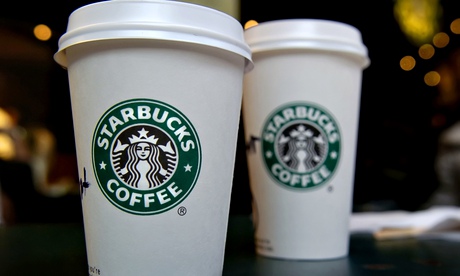
It’s the moment every writer lives for: a box arrives at your door containing copies of the new edition of your book. Beaming with satisfaction, I tear off the binding tape. Years of hard work are stacked and gleaming, ready for display on the bookshelf. But it doesn’t take long for my warm glow to turn frosty. For, when I open the consignment from my US publishers and inspect a copy, I can see that my surname doesn’t look quite right: Saro-Wiwa has become “Saro-Wiva”.
Anyone with a complex name will feel my pain. We have resigned ourselves to seeing loose approximations of our names on envelopes, application forms, dinner invitations and event programmes. The issue is so irritating there is even a Facebook support group called “I’m Tired of People Fucking Up My Name” (one of the more polite ways of putting it, in my opinion).
“Tired” doesn’t adequately describe how I felt after seeing my moniker garbled on that book spine. Having endured this sort of thing for 38 years, I thought I had seen it all. My family name has been mangled and botched in every conceivable way: “Sara-Wawi”, “Sira-Wowa”, “Viwa” and “Viva” are just some of the ignoble permutations, though by far the worst came from my childhood doctor’s receptionist, who insisted on calling us “Saro-Wiwi”. Cue giggles from other waiting patients.
It’s been happening for so long that I have learned to tolerate it in the same way a statue tolerates bird shit. But while I can forgive a typo in a hospital letter or on an employment rejection notice, getting my name wrong on the cover of a book is taking things to a whole new level. And in the age of word processing, it is inexcusable.
Humans are capable of performing miracles. We have cloned sheep, invented aeroplanes and built computers; we are an innovative species – so innovative, in fact, that people are constantly finding new ways to bypass the copy and paste function and butcher the Saro-Wiwa name in spectacular fashion. Sometimes the letters have been rearranged so thoroughly it looks as if the typist has bounced a basketball on the keyboard and pressed “save” straight afterwards. How else to explain the letter I received from the Royal Free Hospital, addressed to “Noovaavo Saro-Wiva”?
Mistakes like these were forgivable in the 19th century: people wrote with ink and quills, and Word for Windows didn’t exist. The clerks at Ellis Island in New York probably had sore wrists and addled brains after filling out so many immigration forms. Under such circumstances, they could be forgiven for mangling foreign names. And the immigrants, bewildered and fresh off the boat, understandably accepted their botched appellations and shuffled on. New life, new language, new identity.
Powerlessness in the face of sloppy bureaucracy is something I’m accustomed to. It began at school, when I was three and England was a different place from today. Political correctness hadn’t yet taught the natives to self-flagellate after pronouncing a foreign name incorrectly, so people called me whatever they liked, including “thingy” or “thingamajig”. My first name, Noo, is actually pronounced “naw”, but teachers in the 1980s weren’t interested in the phonetics. I was too young to tie my shoelaces let alone correct my elders, and so I went along with their pronunciation (“Nu”) right up until university. My oldest friends call me that to this day.
I can laugh about it now, but the prospect of hearing some heinous version of “Noo Saro-Wiwa” served to amplify my childhood shyness in public arenas. I dreaded my name being called out in school assembly or at other events. These days, during business phone calls, the person at the other end of the line sometimes refuses to accept the correct pronunciation of Noo, convinced that I’m either mumbling or that the line is bad. They ask me to repeat it twice. Then, they ask: “How do you spell it?”, hoping this will clarify the situation – at which point I massage my forehead and begin my breathing exercises.
Over the years, I have learned to power through these hurdles and assert the accuracy of my name. However, life is short and there are still occasions where I take the path of least resistance. When the staff at Starbucks want to personalise my cappuccino, for example, I tell them my name is Kelly. But that’s OK because a coffee cup is disposable. A book, on the other hand, is not, which is why I now have a dozen “special editions” of Looking For Transwonderland that will never see the light of day.
It’s not just us “ethnics” who suffer, of course. In our globalised economy, even the John Smiths of the world become foreigners when ringing a call centre or ordering a Starbucks latte. Still, my faith in society’s literacy skills is so shaky that there is no situation in which I feel I can relax. If ever I won the Wimbledon tennis title, I would sprint off court immediately after match point to ensure the trophy engraver got my name right. These things cannot be left to chance.
The hope that raising my profile would stop the world from effing up my name has proved delusional. Only last week I was invited to a travel writing conference in York where I was one of the key speakers. They gave me a name badge to pin onto my sweater. What did I see printed on the card? “Noo Saro-Wawa”. I sighed, sucked my teeth, pinned that card to my chest and proceeded with what dignity I had left.
If I ruled the world, any non-dyslexic who misspelled my name would be tarred, feathered and force-fed Weetabix without milk. But in lieu of that, I am politely requesting that we all take care to write down each other’s names correctly.
Do we have a deal?

